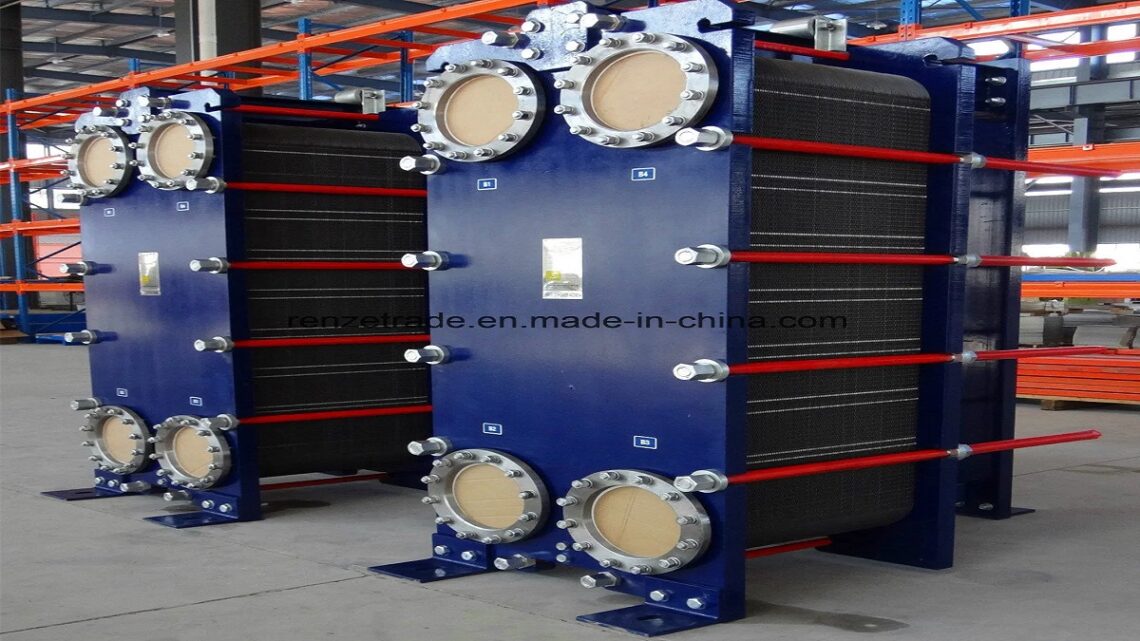Why Glycol Is Essential For Your Heating System
Glycol is an essential fluid used in many heating systems. It helps keep your system running smoothly, especially in cold weather. Without it, your pipes could freeze, and your heating system could stop working when you need it most. But how much glycol should you actually use in your heating system? Using the correct amount is important for making sure your system works well and stays in good condition.
This blog will explain why glycol is used in heating systems. We’ll also cover how to find the right amount for your system, and why to check the levels regularly. We’ll also talk about what happens if you use too much or too little glycol. By the end, you’ll know exactly how to keep your heating system running smoothly.
Why Glycol Is Used In Heating Systems
Glycol is a special fluid that helps protect your heating system, especially during the winter months. It’s commonly used in systems where freezing temperatures can cause damage to pipes and other components. Here are two main reasons why glycol is so important:
Prevents Freezing
Glycol has antifreeze properties. This means it lowers the freezing point of the fluid in your heating system. When water freezes, it expands, which can cause pipes to crack or burst. Adding glycol to your system helps prevent this from happening by making sure the liquid doesn’t freeze, even in very cold weather.
Stops Corrosion
In addition to preventing freezing, glycol also contains chemicals that help stop corrosion. Corrosion is when metal parts in your system, like pipes and radiators, start to wear down due to contact with water and air. The additives in glycol help protect these parts and keep your heating system running longer.
Whether you are installing a new system or need a glycol chiller service, using the right type and amount of glycol is key. In places like Denver, many homeowners hire experts, like Teamworks Mechanical, to protect their systems from the cold.
Determining The Right Glycol Concentration
Now that you know why glycol is important, let’s talk about how to figure out the right amount to use in your system. Glycol is usually mixed with water to create a solution. The concentration of glycol in the water mix will depend on factors like your climate and the type of heating system you have.
Understanding Glycol-To-Water Ratios
In most heating systems, the glycol-to-water ratio is between 30% and 50%. This means that if your system holds 100 gallons of liquid, you would use between 30 and 50 gallons of glycol and the rest would be water. The exact ratio you need depends on how cold it gets in your area. Colder climates typically require a higher concentration of glycol.
If you’re unsure of the right concentration, it’s a good idea to ask a professional, like Teamworks Mechanical, for advice. They can help calculate the right amount of glycol for your heating system. This is especially true if you need glycol system repair Denver or nearby areas.
Calculating The System Volume
To figure out how much glycol to use, you first need to know the total volume of liquid in your heating system. This includes all the water that flows through the pipes, radiators, and other components.
Measuring Your System’s Volume
You can usually find the total volume of your heating system in the system manual. If you don’t have the manual, a professional can measure the system for you. Heating systems come in all sizes, so it’s important to get the right measurements. Once you know the total volume, you can calculate how much glycol you’ll need based on the desired concentration.
For example, if your system holds 200 gallons of liquid and you need a 40% glycol concentration, you would multiply 200 by 0.4 to get 80 gallons of glycol. The rest would be water.
If you’re planning a glycol chiller installation, it’s also a good time to get the system’s volume calculated. This ensures the glycol mix will be added correctly from the start.
Adjusting Glycol Levels
Once you know the right concentration and volume, the next step is to add or adjust the glycol in your system. If your system already has glycol but you need to adjust the levels, you can either add more glycol or dilute it with water.
Tools For Adding Glycol
To add glycol, you’ll need a pump that can inject the glycol into the system. You’ll also need to have the right mix ready before adding it. Professionals like Teamworks Mechanical often use special equipment. It ensures the glycol is mixed and added safely to the system. This is especially important if you’re doing a large installation or repair job.
If you need to remove some glycol or drain the system, you can use the same tools. However, dispose of the glycol per environmental guidelines.
Importance Of Regular Glycol Maintenance
Using the correct amount of glycol is only part of the process. It’s also important to regularly check the glycol levels and condition in your system. Over time, glycol can degrade, which means it won’t protect your system as well as it should.
Testing Glycol
You can test the glycol in your system by checking its pH levels and freezing point. These tests will show if the glycol is still working properly or if it needs to be replaced. Many companies, like Teamworks Mechanical, offer routine glycol chiller service to help keep your system in good shape.
Keeping An Eye On Contamination
Another thing to watch out for is contamination. If dirt or debris gets into the system, it can cause the glycol to degrade faster. Regular maintenance and cleaning will help prevent this from happening.
Risks Of Too Little Or Too Much Glycol
Using the wrong amount of glycol can cause serious problems in your heating system. If there’s too little glycol, the system may not be fully protected, especially in cold weather. This could lead to freezing, which can cause your pipes to burst.
Too Little Glycol
If your system doesn’t have enough glycol, it won’t be able to prevent freezing effectively. In cold climates, like Denver, where it often freezes, this could lead to costly glycol system repair Denver homeowners face in winter.
Too Much Glycol
On the other hand, using too much glycol can reduce the efficiency of your heating system. Glycol is thicker than water, and if there’s too much in the system, it can make it harder for the system to pump the fluid. This could cause overheating or other issues that affect performance.
Finding the right balance is key. That’s why regular testing and adjustments are so important.
Ensure Optimal Heating System Performance With The Right Glycol Balance
In conclusion, using the right amount of glycol in your heating system is crucial for its efficiency and longevity. Glycol prevents freezing and corrosion in your system. However, the right concentration is crucial for your climate and system. Regular maintenance, including glycol chiller installation and service, is key. To prepare your heating system for cold, calculate its volume, find the right glycol-water ratio, and test the glycol regularly. Need help? Teamworks Mechanical is ready to assist.
Read More





